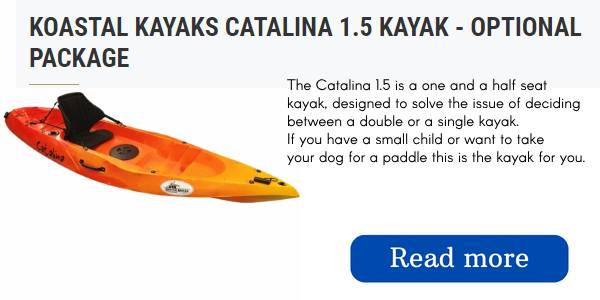Things to Know when you Start Surfing
Here is what you need to know about surfing before heading out into the ocean: surf ethics, equipment, tips for beginners, choosing a surf spot, and more.
The Learning Curve
Before you start surfing, you should know that it is one of the most difficult and complex sports in the world. Every wave is different, so the playing field is constantly changing. Elements such as wind, tides, and swells affect the waves differently every day.
The learning process for surfing is both challenging and enjoyable. When you catch your first “green wave,” you become addicted. Understanding the learning curve helps you set your attitude and expectations for surfing.
Unlike snowboarding, for example, there is no moment on the third day when you think “I got this” and then you rarely fall again. When surfing, you will wipe out for years.
The Importance Of Your Surfboard
In any sport, having the right equipment matters. But this is especially true for surfing, where the right equipment can mean the difference between getting 20 waves or 0 waves in your session.
Surfing is all about having the right board. It’s not about having the newest model. It’s about having the right volume and rocker. The volume is the measurement of how much flotation the board has. It’s a function of length, width, and thickness.
When you start surfing, you want lots of volume. (Choose either a longboard or a foamboard. Boards that are wide, thick, long, and have a flat rocker.) Our favorite boards for the first days are 7″4 Gnaraloo foamboards.
They are very thick and wide, but not too long so the nose doesn’t dive often.
Choose The Adequate Surf Spot
This is extremely important. Many surfers will tell you that it is safer to start on a beach break, but this is only to a certain extent. It is better to fall on sand than on rocks or coral reefs, but there are some sandy beach breaks for advanced surfers and some rocky point breaks for beginner surfers.
To make things more confusing, some spots may be good to learn on one day and only good for experts on another day due to wave conditions.
All of these factors are important to have a good time in the water The best way to judge if a surf spot is appropriate for your level is to consult surf reports for the wave conditions on the day you intend to surf, taking into account all of the relevant factors such as type of board, surf level, tide, swell, bottom, etc.
Our favorite surf report website is Surfline.com, as the information is written by professionals and is usually very accurate.
It’s always a good idea to do some research online. But the best thing to do is to talk to people who are knowledgeable and experienced surfers and have been surfing the area for a long time.
They are the ones who can tell you where to go according to your surf level.
Have Someone To Show You The Basic Technique
Point number one showed that surfing is an incredibly complex and technical sport. It would be really bad to learn the wrong basic techniques and then have to go back and unlearn all of the bad habits.
Although it may be difficult to change old habits, it is important to learn to surf the right way if you are serious about the sport. An experienced friend or surf coach can show you the basics to get you started.
Learn About Surf Ethics
There are many, many rules to go by in surfing. Below are the top 3 things you should focus on. If you want to know more, watch our Surf Etiquette video for the Top 9 Rules you need to know.
Don’t Drop In
The main violation of surf ethics is drop-ins. This is when one surfer “steals” another surfer’s wave. Quality waves are meant to be ridden by only one surfer so that they can enjoy the specific powerful areas of the wave.
If two surfers are paddling for the same wave, the surfer who is closer to the peak of the wave has priority. The surfer closest to the peak will have the longest ride.
Choose The Right Spot For Your Ability
We have seen how to do this in point #3. This is a very important aspect of surf ethics. Respecting others and their space is a key part of maintaining a safe and fun surfing environment for everyone.
Respect The Locals
Some surf spots are more “localized” than others, which means that the locals at those surf spots are more likely to be welcoming to strangers than at other surf spots.
Just remember that you’re not at home and be positive, respectful and unselfish, and you should have no problem making friends at the surf spot.
Surf Tips For Beginners
Although the learning process for surfing is difficult, there are some beginner tips that would have been helpful to know.
Find the Right Type of Beach
The most essential tip for anyone attempting to surf is to only do so in favourable conditions.
Find a beach with a sandy bottom and calm water if you are just starting to surf. You are likely to fall while you are learning, so it is best to surf in an area without rocks or other obstacles.
Find the Right Size Wave
You should paddle out on very small days.
I am familiar with a lot of women who initially took up surfing but quit after being scared by waves on a particularly big day. One great thing about rock climbing is that almost all routes are given difficulty ratings, so you can gauge the level of challenge posed by each climb.
Surfing is a little more dynamic and less predictable.
Although Surfline and Magic Seaweed give good predictions and reports of current conditions, there is always the chance that something unforeseen will happen due to the ocean being unpredictable.
Be a Strong Swimmer
This will give you the confidence to surf when the waves come. An important rule when learning to surf is to develop your paddling skills first. This will give you the confidence to surf when waves come.
Losing weight is more about developing good habits, such as eating healthy and exercising regularly, rather than quitting all bad habits.
Things You Should Know When Learning to Surf
As you go through the good and bad times of this sport, remember these things.
Humility
Although it may be difficult, learning to surf is an experience many people enjoy. Even if you are athletic, you will not be able to catch waves or perform tricks immediately.
I’m not saying you shouldn’t learn to surf. Everyone could use a little humility now and then. I would actually encourage it. Just be sure to do it on days with waves that are the right size for you and have the right mindset going in: persistence, not worrying about the results, and having a sense of humor.
Patience
Although you may have a great work ethic, nature is ultimately in control.
If you’re able to paddle through the rough water and sit on the outside of the waves, you’ll be doing that for most of the time.
You have to be patient when waiting for a set of waves, and most of the time you have to share the waves with other people, requiring even more patience.
Persistence
On days when the waves seem insurmountable and you feel like you’re going to drown, don’t let it discourage you.
You can always get better at surfing, and it takes more failures than successes to improve.
Awareness
You are always looking ahead to the horizon and never take your eyes off the ocean. Although you may daydream a little while you are waiting on the shore or chat with another surfer, most of your attention is focused on the horizon, hoping that the next wave will come towards you.
You need to be aware of what is happening in the present moment.
Before you enjoy the incoming ride, be aware that your mind racing ahead could result in you losing it.
Acceptance
There is always a set of waves that are bigger than the others. You need to be in the water deep enough to catch these waves. But if a large set of waves comes suddenly, it can break on your head.
The waves can be seen coming from the shore, but by the time the surfers see it, it’s usually too late. They will paddle as fast as they can to get deeper in hopes of paddling over it, but most of the time, the waves crash right on them, and boards can be seen flying all over the place.
If you wipe out on your surfboard, try not to panic. Take a deep breath and stay calm. Then get back on your board and start paddling back to where you were before the big wave hit.
Don’t let your fear of waves stop you from having fun; most of the time, the best waves are right where you are.
Act More Like A Kid
Why would anyone choose a sport that is so stressful, painful, and at times ruthless? Because when you do catch that wave, for those few seconds nothing else exists and it is the most exhilarating feeling in the world.
The rush of adrenaline you get from playing can make your whole day perfect. Kids love to play and never need to explain why they want to have fun.
When you surf, it is fun.
Confidence
“I’m really happy with that ride!” is what I think when I do well on a ride. I’m proud of myself because I worked hard for it.
No one handed me success. I achieved it through my own grit and determination. When you achieve something through your own hard work, it’s only natural to feel confident.
Success is great! It’s a good feeling to achieve something, and the best way to become successful is through failing and learning from those failures. So go for it!
Be Grateful
Live in the moment and enjoy it while it lasts because it will be over before you know it.
Do not compare yourself to others who may seem to be doing better than you; remember to be grateful for your own accomplishments. If you wish to achieve more, put in the extra effort.
Detachment
Do not invest too much emotion in this sport as the ocean can be unpredictable and harsh. Each day brings new challenges.
Love The Ocean Unconditionally
The one constant about surfing is that the ocean is always changing and there is no controlling it.
Accept life for what it is, the good and the bad, and learn from both the triumphs and the failures.
You are the only person who can control your own happiness. Be proud of who you are and what you can do, and accept that there are some things in life that you can’t control.




